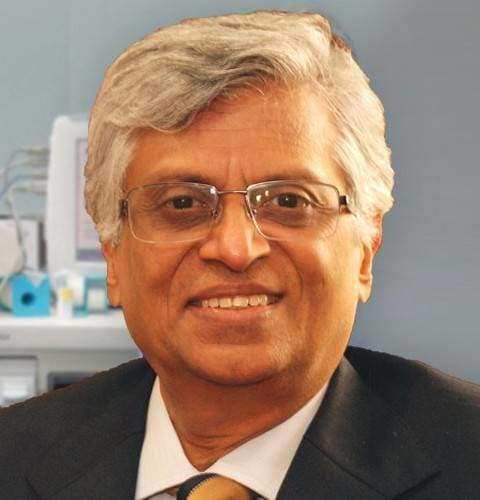
Dr. Sanjay Agarwala Director – Professional Services, Head – Orthopaedics & Traumatology, P. D. Hinduja Hospital, Mumbai
During the Post-COVID, osteonecrosis appears to be more aggressive, with COVID-19 itself contributing to its etio-pathogenesis in addition to corticosteroids. The possibility of AVN of the femoral head can be conclusively established by a MRI scan in symptomatic patients, and successfully treated with bisphosphonates, if detected in its early stages.
With around 3 decades of excellence in treating Avascular Necrosis (AVN), the treatment modalities have undergone revolutionizing results and those cases which otherwise would require surgical interventions have now become medically curable.
So far speculation and conjecture exist that AVN (Avascular necrosis – osteonecrosis) was a possible outcome in COVID survivors. COVID survivors, who have been on steroids, and then develop hip or thigh pain – need confirmatory MRI to establish a diagnosis of AVN (osteonecrosis) of the femoral head.
Osteonecrosis of the femoral head are successfully treatable with Dr Agarwala ‘s well researched bisphophonate therapy, which is different from osteoporosis management. Recent publications in international peer reviewed journals have established the validity of his long-standing research results. This is a Made in India, for the World Treatment, strategy.
If they are started on early bisphosphonate therapy, which has been written up by Agarwala et al in multiple peer reviewed international publications over 20 years, these patients have amazing early resolution of symptoms and reversal of the disease.
Corticosteroids are lifesaving in the management of COVID 19, and patients who had COVID infection are much more susceptible to AVN development either at lower threshold dose of steroid, or earlier onset of presentation. Hence, on early suspicion, on complaints of hip and thigh pain, diagnosis can be established by early MRI of the femoral head. Patients with early AVN (Ficat-Arlet Stage I and II), can be successfully treated with Bisphosphonate therapy. Symptoms recede and the condition reverses. MRI evidence confirming this reversal is conclusively presented in the publication accepted by the BMJ.
The study conducted by us suggested the development of Osteonecrosis around 58 days later post recovery. While all the patients were experiencing pain in the hip and thighs, medications were provided to them in a series and at the last follow-up, none of them complained about the pain and required surgery. Out of the total 88 patients, 84 of them showed good clinical outcomes at a follow up in 10 months, while only 4 of them required surgical intervention.
Early detection can lead to favourable outcomes for the patients suffering from these conditions. We encourage people who experience pain in the hip or thigh post covid recovery to opt for MRIs as early as possible in order to diagnose AVN.
Dr Sanjay Agarwala, has revolutionized the treatment modality for such cases with his latest findings. While most of the patients were being recommended for surgical procedure, Dr Agarwala has been successfully treating it with bisphosphonates.

